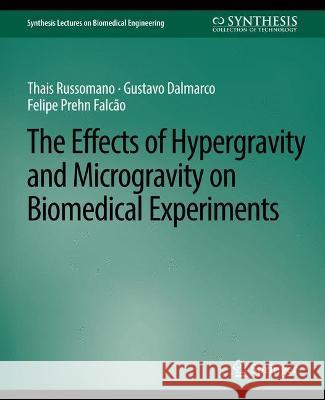The Effects of Hypergravity and Microgravity on Biomedical Experiments » książka
The Effects of Hypergravity and Microgravity on Biomedical Experiments
ISBN-13: 9783031004964 / Angielski / Miękka / 2007 / 70 str.
Take one elephant and one man to the top of a tower and simultaneously drop. Which will hit the ground first? You are a pilot of a jet fighter performing a high-speed loop. Will you pass out during the maneuver? How can you simulate being an astronaut with your feet still firmly placed on planet Earth? In the aerospace environment, human, animal, and plant physiology differs significantly from that on Earth, and this book provides reasons for some of these changes. The challenges encountered by pilots in their missions can have implications on the health and safety of not only themselves but others. Knowing the effects of hypergravity on the human body during high-speed flight led to the development of human centrifuges. We also need to better understand the physiological responses of living organisms in space. It is therefore necessary to simulate weightlessness through the use of specially adapted equipment, such as clinostats, tilt tables, and body suspension devices. Each of these ideas, and more, is addressed in this review of the physical concepts related to space flights, microgravity, and hypergravity simulations. Basic theories, such as Newton's law and Einstein's principle are explained, followed by a look at the biomedical effects of experiments performed in space life sciences institutes, universities, and space agencies. Table of Contents: General Concepts in Physics - Definition of Physical Terms / The Effects of Hypergravity on Biomedical Experiments / The Effects of Microgravity on Biomedical Experiments / References











